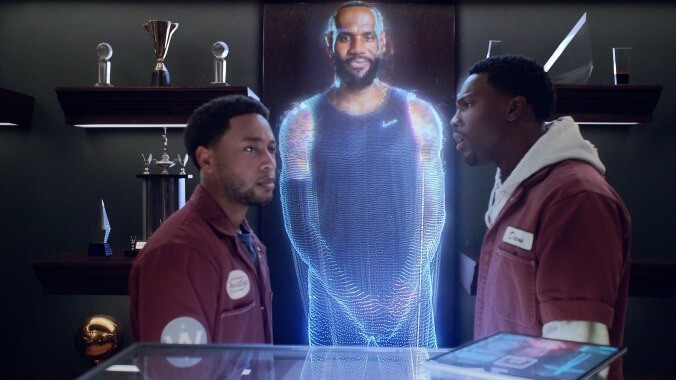House Party review: reboot brings some of the original's humor, but not its charm
The latest LeBron James-produced reboot is thankfully no Space Jam... but it's no House Party either

As House Party begins, co-protagonist Kevin (Jacob Latimore) tells us “There’s some crazy, beautiful, weird-ass shit about to go down.” When we meet his co-lead, Tosin Cole’s Damon (pronounced duh-MON), another character declares “It smell like ass and onions in here!” Both offer reviewers irresistibly easy comparisons, but this attempted franchise reboot doesn’t fully resemble either remark. Certainly, it works best when indulging its weird-ass side, but like onions, some scenes really could have used additional preparation to be more palatable.
In the gradually increasing pantheon of LeBron James-produced remakes of movies he liked as a kid, House Party is a definite improvement over Space Jam: A New Legacy, probably because it actually has good source material to work from. The feature directorial debut of Reginald Hudlin, based on his award-winning student film, was originally intended as a vehicle for Will Smith and DJ Jazzy Jeff, but arguably fared better with the lesser known Kid n’ Play, whose chemistry was similar. A bit of a surprise hit in 1992, it spawned a theatrical trilogy and two direct-to-video sequels. For those concerned with continuity, this is not a legacy sequel, with the original movie existing as a movie within it.
A reboot was surely inevitable, though it curiously misses the most important ingredient: two leads who are already friends and have that natural chemistry together. Latimore and Cole aren’t just from very different places—the former best known for his singing, and the latter best known for Doctor Who. But their characters don’t even feel like they should be friends. Latimore’s Kevin is a single dad scrambling to make a life independent of his parents; Cole’s Damon is an irresponsible party promoter who steals and scams. Longtime pals like Kid n’ Play can make that odd-couple dynamic work, while these two, minus that familiarity, just seem like they should leave each other well enough alone.
Also working against the reboot is a significant change in premise. Instead of high schoolers sneaking around behind their parents’ backs to party and have (safe) sex—something most moviegoers of that age and above can relate to—our protagonists are party promoters looking to make a life-saving amount of cash. As a celebrity entrepreneur and all-time great athlete, James can probably relate. The rest of us? Maybe not as much. The part where they’re also about to be fired from their day jobs as house cleaners brings things a bit more down to Earth, with the high concept coming in when they realize they’re at the house of LeBron himself, and can make money by holding a party there that same night, using his email contact list and some quick viral marketing.

















![HBO teases new Euphoria, Larry David, and much more in 2026 sizzle reel [Updated]](https://img.pastemagazine.com/wp-content/avuploads/2025/12/12100344/MixCollage-12-Dec-2025-09-56-AM-9137.jpg)






















